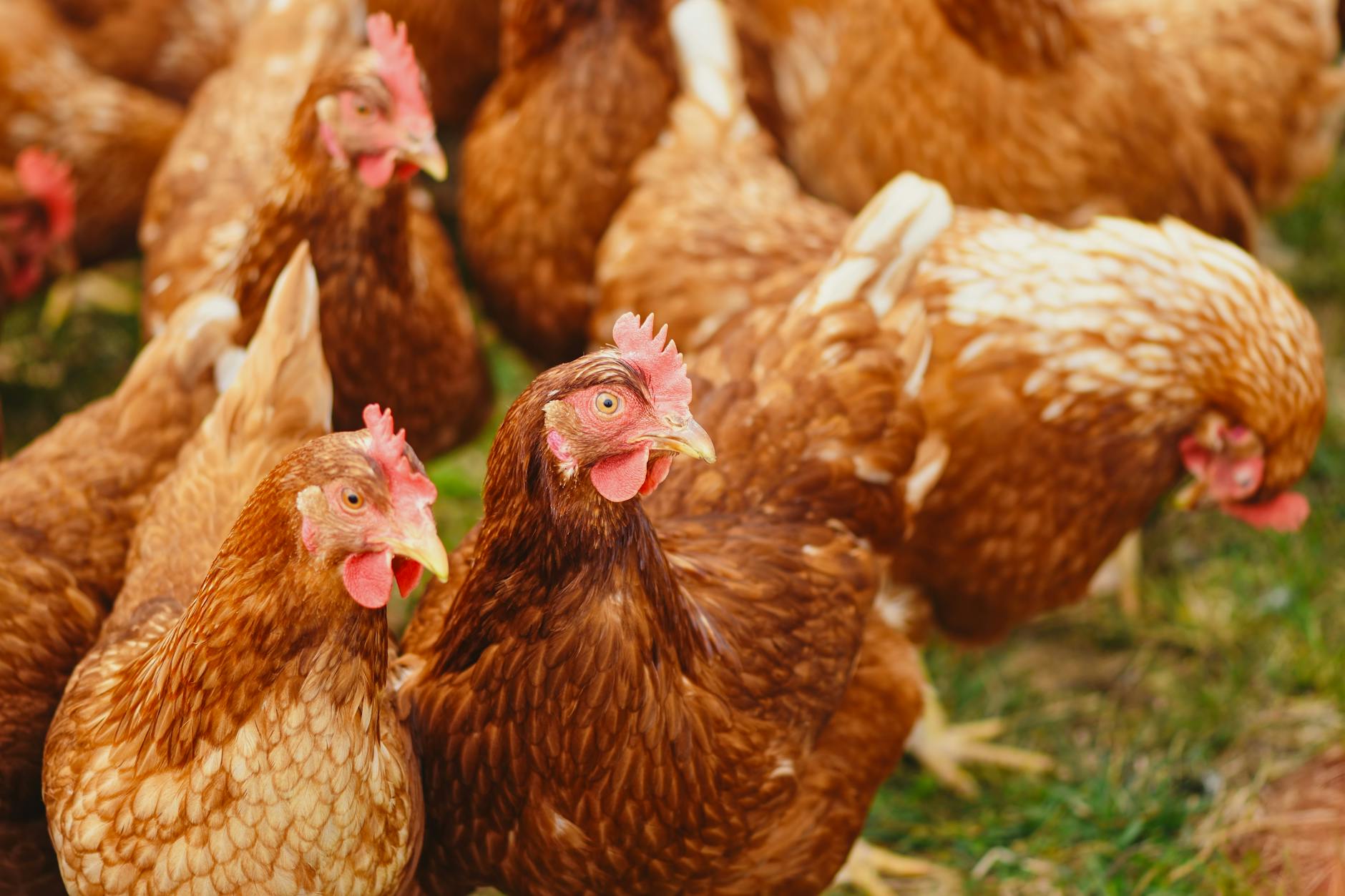
You might have noticed the skyrocketing prices for eggs. The debates about raw milk. Or the increasing headlines in recent months about a spreading disease called bird flu. But what exactly is all the buzz about? Here are some of your most pressing questions, answered.
What is bird flu?
Bird flu, also known as avian influenza, is a disease caused by a group of viruses. These viruses mainly affect birds but can also infect humans and other animals. Right now, scientists are worried about a type called H5N1.
How does it spread?
Bird flu spreads through contact with infected birds’ saliva, mucus, or poop. These can spread as tiny particles that land on surfaces. You can also breathe them in or get them in your eyes, nose, or mouth. Because of this, people who work directly with birds (or cows, who can also get bird flu) may be at higher risk of getting sick. It’s also possible to get sick from eating infected animals.
So far, this outbreak has not spread from person to person.
Can it make people sick?
It’s rare, but possible. Most bird flu viruses do not make people sick, but H5N1 can.
So far, 68 people have gotten sick in this outbreak.
What are the symptoms?
The biggest sign of bird flu in humans is red, irritated eyes. It also can cause fever, cough, sore throat, runny or stuffy nose, body aches, headaches, and fatigue. For most people, these symptoms are mild. For others, they can be more severe. And some people might not get any symptoms at all.
Can you die from bird flu?
Yes. So far, one person has died in this outbreak.
Can it make cows sick?
Yes. Several states have seen outbreaks in dairy cows. People who work closely with the cows also have gotten sick.
Why are egg prices so high?
A lot of chickens have gotten sick, and many farmers have had to kill their flocks to prevent the spread of disease. This has caused the supply of eggs to go down, driving prices up.
Is it safe to eat eggs?
If you’re buying eggs from the grocery store, you’re probably fine. That’s because scientists and farmers are keeping a close eye out for sickness in their flocks. But just in case, make sure to cook your eggs well. The high temperature kills the virus.
Is it safe to drink milk?
It’s safe to drink pasteurized milk (the kind normally sold at the grocery store). This means that the milk is heated to a temperature that kills the bird flu virus and other germs.
Raw milk is milk that hasn’t been heated to these high temperatures. This can contain live bird flu virus. As far as we know, no one has gotten sick from drinking raw milk yet. But it seems very possible. CDC warns against drinking raw milk because of the risk of getting sick.
Will the flu shot protect me?
The flu shot is only designed to protect you from seasonal flu, so it won’t stop you from getting bird flu. But scientists recommend getting the flu shot anyway, especially if you work with birds or cows. That’s because they don’t want people to risk getting infected with both seasonal flu and bird flu at the same time, which could cause the viruses to mutate.
Could this become a pandemic?
Right now, CDC says the risk to humans is low. But it’s important to keep our guard up, in case the virus mutates.
What are scientists doing to stop the spread?
CDC, USDA, NIH, FDA, and other partners are working together to keep people safe. They are:
- Telling people who work closely with animals how they can protect themselves
- Keeping an eye on people who work closely with animals in case they get sick
- Testing people so that infections are caught early and treated
- Researching the virus to learn more
- Preparing for a widespread vaccination program, just in case
- And more
All of this work takes a lot of funding and support. Ultimately, it helps keeps us all safe.
References:
CDC. (2022). “Bird Flu in Animals and People: Causes and How It Spreads.” https://www.cdc.gov/bird-flu/virus-transmission/index.html
CDC. (2024). “What Causes Bird Flu Virus Infections in Humans.” https://www.cdc.gov/bird-flu/virus-transmission/avian-in-humans.html
CDC. (2024). “Signs and Symptoms of Bird Flu in People.” https://www.cdc.gov/bird-flu/signs-symptoms/index.html
CDC. (2025). “CDC Activities and Accomplishments to Date in 2024—2025 H5 Bird Flu Response.” https://www.cdc.gov/bird-flu/spotlights/h5n1-response-01172025.html
CDC. (2025). “Current Situation: Bird Flu in Dairy Cows.” https://www.cdc.gov/bird-flu/situation-summary/mammals.html
CDC. (2025). “H5 Bird Flu: Current Situation.” https://www.cdc.gov/bird-flu/situation-summary/index.html
Kekatos, M. (2025). “As bird flu spreads, what is the risk from eggs and milk?” https://abcnews.go.com/Health/bird-flu-spreads-risk-eggs-milk/story?id=118544360

Leave a Reply